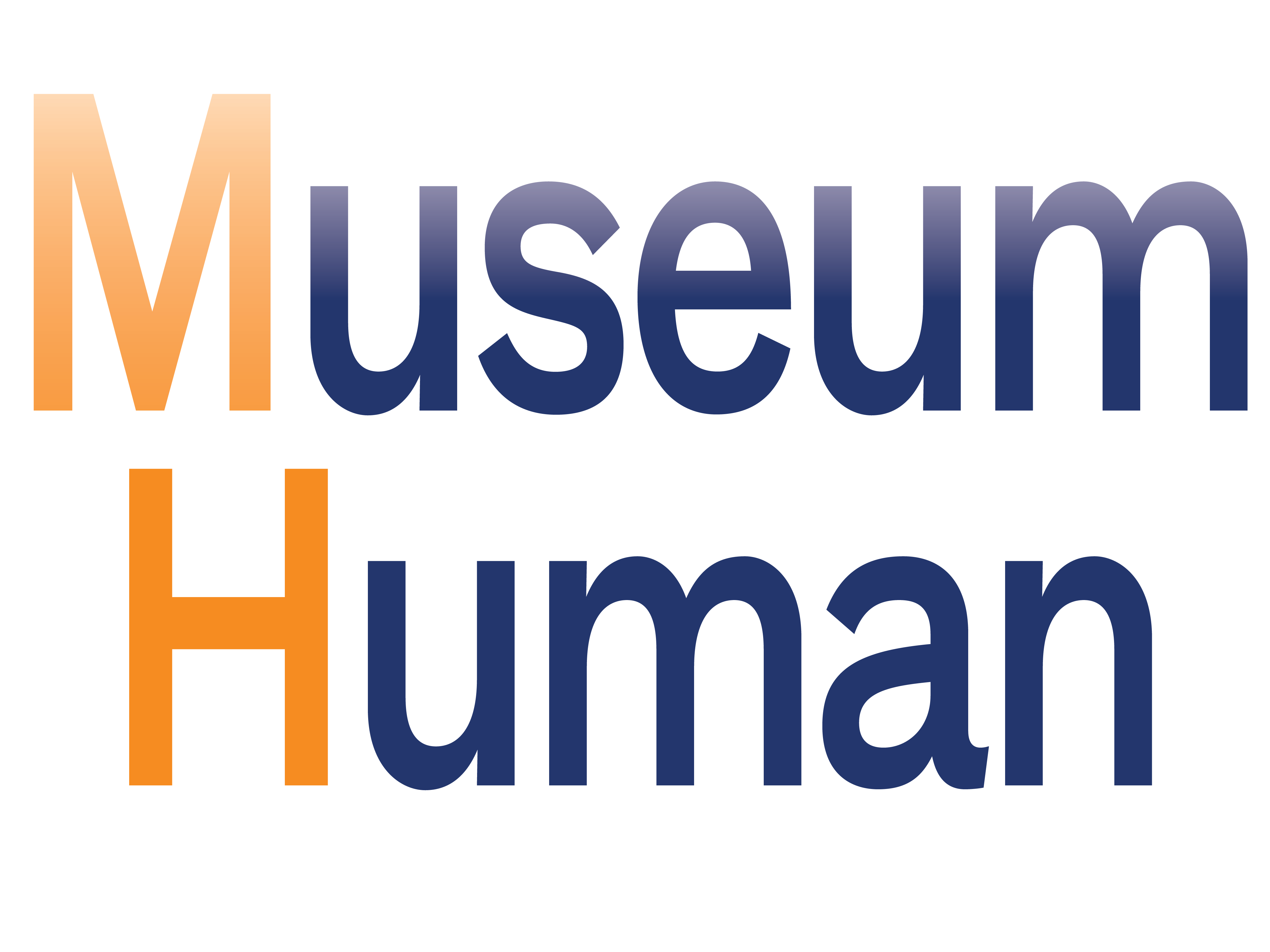
Has fear of an empty workplace supplanted promised org humanism and flexibility?
If you're reading this and not a subscriber to Museum Human, consider scrolling to the bottom and signing up now—it's free and is the only way to read the site's longer weekly post on the organizational culture of cultural organizations.
I've written a lot over the past year about hybrid workplaces and authentic flexibility; did I really think the discussion would turn this negative this fast? Did I misjudge the willingness of organizations to deny hybrid work altogether? Especially museums?
Museum leaders are defining the culture of their workplaces, and that is a dangerous, gaslighting trend. Culture is built from the ground up (or in museum cases, from the front of house to the back)—leaders can plan, but it's the lived experience of workers and visitors which constructs museum culture. And yet workers are especially cynical about culture explanations because their leaders have never bothered to have a culture that was meaningful to workers.
It's time to come home, museum leaders have said, telling us what we miss about work. Now maybe we're getting advice from parents and columnists—well they're the boss and that's that, they can tell you what to do.
But are workers going to go along with that? Some older workers below c-suite level may feel secure and privileged enough to air their opinions, but they also have the concerns of a career close to retirement. Younger staff, however, may already fed up (assuming they haven't been laid off). Are they ready to quit (also here) if the workplace doesn't feel right to them? (They're asking the same question about school systems.) To question why they're working at a job that doesn't love them back? (I'm reading Sarah Jaffe's book right now.) Or to give an earful?
Workers have forged new kinds of relationships and productivity, all while working longer hours at home. They want that recognized (even as workers concede what they've lost from not being physically near colleagues), not just once but transformatively. Even while missing their colleagues, workers know that office work has many negatives as they figure out what kind of working day works best for them (also here).
People are doing this because they believe that what works best for them, even existentially, will work best for the organization. A conceited view? Perhaps. But that doesn't make it wrong.
So have I been too accepting that everyone would appreciate this new flexibility, this new learning, this new innovation, this new trust, this new productivity (this new overwork)?
First, the bad news:
Here's The Atlantic on how working remotely will in fact make you a second-class org citizen. But it's worth asking if workers would willingly accept a slower-track career, a different idea of ambition, if it meant more work-from-home.
This Medium article takes a measured pro-office stance, and though it doesn't gaslight in favor of coming into a workplace, it in fact accuses flexible-work advocates of gaslighting. (Is this a view shared by extroverts who can't wait to be back among everybody? Every day there are more articles of the "can't wait for summer" variety, accusing the anxious of social-media-driven negativity, Delta-variant-be-damned.) While workplace habits might be ingrained by leadership—if your leaders and powerful colleagues work through meetings, you'll have a lot of meetings at your workplace—it's important to remember that culture is realized in the lived experience of its workers.
This is why leadership plans for reopening can ring hollow when workers feel that leaders don't get what it's really like to work there, what tasks happen from minute to minute to keep the place running. And performative individualized resources won't change that.
Even when flexible work will be allowed, a "new conventional wisdom" is arising that companies can't let workers decide their own schedules because of the workplace will fracture along demographic lines, according to Harvard Business Review. But shouldn't the question be, what are the compelling reasons to come to the office, and can at least some of these be tangible expressions of the importance of presence? Workplace gatherings should be anchored around real reasons for togetherness, a common goal of helping each other to find purpose at work, as per this McKinsey interview. (Or purpose through work? In work? There are lots of ways to express this.)
Finally, Microsoft CEO Satya Nadella penned this post on (Microsoft-owned) LinkedIn on how tech can help guard against a return to the bad old days of back-to-back (and so on) meetings, as a way to ease a return to the everyday connections of workplaces. He sees pervasive tech as a way to make flexible work possible, and while it seems that this approach is more hybrid friendly, there's a certain techno-solutionism (hardly surprising considering the source) and an implied necessary blurring of boundaries between work and home—despite the relentless talk of employee well-being. When you're a silicon hammer, everything looks like a networked nail—or something like that.
To gain some ammunition in the flexible work debate, read org culture guru Stowe Boyd on how the federal government (at least as long as Biden is in charge) is going more, not less, remote. And yet, as Boyd notes, the language is still one that "returning to the office" equals "returning to work." People have been working!
Cal Newport (whose book A World Without Email I recently finished) penned this piece in the New Yorker about how hybrid work might find a middle ground in off-site but not in-the-office workplaces. Can museums create on-site or nearby work spaces/annexes for proximal work? ("Work from near home," Newport calls it) Some museums already sort of have these kind of arrangements for "non-core" departments, but these are still traditional offices that just happen to be outside the main museum building.
A more revolutionary idea might be museum hot-desking, giving people more options of where to work inside the museum. (Forgive me my own bias towards restlessness—I know many workers who have been remote for a while are worried about not having a regular desk or office any longer.) The question of how important it is to be near their managers is a key one which reveal much about how deep trust goes into the "return-to-normal" era.
Middle managers, who are pretty common in museums, face particular stresses in a hybrid workplace where tech might take over routine tasks, writes HBR:
… organizations need to take a two-pronged approach: First, as “routing” tasks become largely automated, middle managers should be empowered to focus on the vital work of forging connections, building belonging among diverse employees, and developing talent. This means investing in training for communication skills, inclusion techniques, and coaching. This also means reducing the total number of middle managers, so that resources can be focused on supporting a smaller group of dedicated leaders.
Second, companies need to build career ladders that allow expert individual contributors to grow in title and compensation based on demonstrated expertise and outcomes, without requiring them to become managers. Many people are ambitious, but not particularly interested in managing people. Providing these employees with a compelling development track will be essential both for their own growth and job satisfaction, and to ensure that those who do become middle managers actually want to do the work involved.
I do think this article worships expertise a little too much—as I've said before, I would like to see this kind of singular knowledge distributing more around museum organizations, so that more people know how to do more things. We have to balance that with job security, but I think it's one key to reducing the cult of busyness.
HBR has more on middle managers here and an article on different post- (I would still say "late") pandemic workplaces here. There are also pieces on what managers of remote workers can do better, how organizations can help develop the careers of hybrid workers, and the how dispersed teams work with successful and unsuccesful projects.
Enjoy all these links! Next week's main post will discuss the future of collaboration in a hybrid-ish museum workplace.
If you're reading this and not a subscriber to Museum Human, consider signing up for a free subscription below—it's the only way to read the site's longer weekly post on the organizational culture of cultural organizations. Thank you for reading!
cover image by Tamanna Rumee on Unsplash [description: a circle of paper clips on a blue background]

Links of the Week: June 10, 2021: Where Will You Work? by Robert J Weisberg is licensed under a Creative Commons Attribution-NonCommercial-ShareAlike 4.0 International License.






